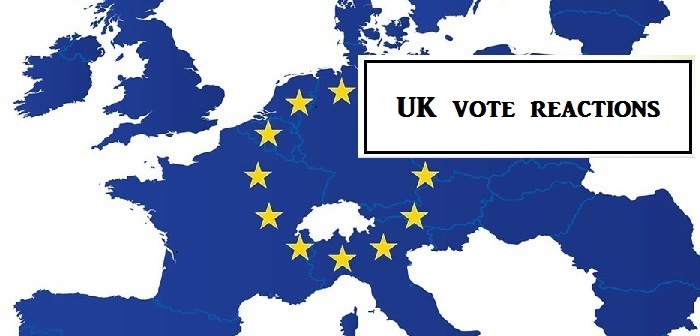A coalition of leading trade bodies has issued a joint statement to the Secretary of States and Ministers at the Department for Exiting the European Union, the Department for International Trade, the Department for Environment, Food and Rural Affairs and the Department for Business, Energy & Industrial Strategy highlighting core objectives and priorities for UK trade policy.
The British Retail Consortium (BRC), the National Farmers Union of England and Wales (NFU) and the Food and Drink Federation (FDF), which represent the whole of the supply chain from farm to fork, will work with the Government to agree common objectives and priorities for the UK’s trade policy environment post-Brexit.
The statement addresses the strategic importance for the UK of the food supply chain and builds consensus around a number of priority areas for trade. The food supply chain not only employs almost four million people and generates over £100 billion of value for the economy each year, but keeps the nation fed: ensuring consumers have access to a wide range of nutritional, quality foods at affordable prices.
This is the joint statement on trade:
The UK’s food supply chain – farmers, food and drink manufacturers and retailers – keeps the nation fed, ensuring consumers have access to a wide range of nutritional, quality foods at affordable prices. As the process of leaving the EU develops, the food supply chain will work together to ensure that our consumers continue to enjoy great quality, choice and value.
The UK food supply chain employs 3.9m people from farming through manufacturing to retail and food service and generates £108bn in value.
Much of the food supply chain is domestically based, and our organisations are committed to domestic production that is competitive and profitable and fully meets the demands of British consumers.
Nevertheless, we cannot operate in isolation. Our farmers need imported feed and inputs and they need access to other markets for their products, especially where demand for these in the UK is insufficient. Our food and drink manufacturers rely on exports to grow their businesses and imports to complement their use of domestically produced ingredients and raw materials. Our retailers need access to a full range of goods all year round to balance seasonality and meet consumer demand.
The regulatory framework that governs this international trade therefore matters to all of us, both in strengthening and supporting UK producers in domestic and foreign markets, and in affording UK consumers and the agri-food and drink industry the benefits of freer trade with overseas partners.
Currently, that framework is determined by the EU, internally through the Single Market and Customs Union, externally through the EU’s Common Commercial Policy. The Prime Minister has made clear that these arrangements will change when the UK leaves the EU.
The new framework for the UK’s trading relations will be determined in part through negotiation with the EU, in part through negotiations with other countries and in part by the UK acting alone. In these distinct areas we call on the government to adopt an approach that will ensure stability and continuity for agri-food and drink businesses by:
* First of all, ensuring a smooth and orderly Brexit by agreeing transitional arrangements that maintain frictionless trade in goods between the UK and the EU, avoiding costly and disruptive customs checks, processes and procedures
* In the medium term, avoiding customs duties on trade by securing an ambitious bilateral free trade agreement with the EU that delivers two-way tariff-free trade
* Establishing the UK as an independent member of WTO, providing continuity and predictability by adopting the EU’s current schedule of Most Favoured Nation bound tariff rates
* Securing the benefits for UK traders of existing EU preferential trade arrangements, including the UK’s fair share of tariff rate quotas for agricultural imports, as well as of any preferential access for UK food and drink exports, at least until government can replace them with acceptable alternative arrangements.
* Engaging in formal trade negotiations with third countries when the terms of the UK’s future trading relations with the EU and other existing preferential trading partners are clear
* Establishing cooperation with third countries on regulatory equivalence and ensuring that all new trade agreements take into consideration differences in regulations and standards when market access is negotiated
* Consulting with stakeholders and undertaking detailed economic impact assessments when trade negotiations are opened and before any offers are exchanged.


